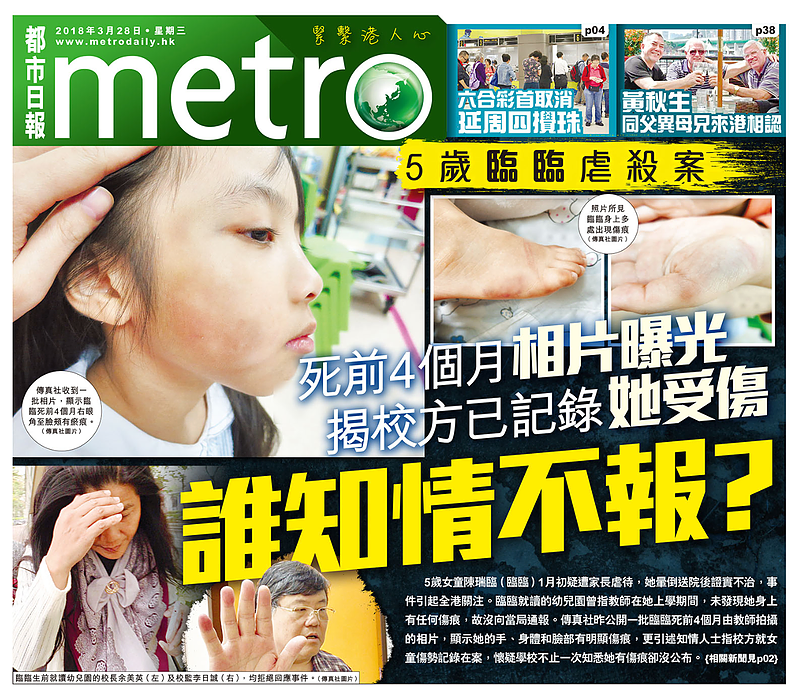關於我們
2015年,在資深記者吳曉東先生的號召下,3,300名香港人史無前例地籌集得470萬港元,創辦了傳真社-香港唯一一間獨立於財團、專門從事調查報道的新聞通訊社。
宗旨
公眾的信任是傳真社的根基,我們堅守獨立、持平和誠實的採訪和報道原則 我們所做的一切都以公眾利益為依歸
我們以發揮記者監察社會的職責為傲 我們是一個具誠信和對任何事物持開放態度的新聞機構 我們是一個為公眾知情權服務的公共服務新聞通訊社
營運模式
傳真社的資金百分百來自公眾,所有款項用作調查記者薪酬、辦公室租金和設備、調查費用及其他營運開支。我們不受任何政治或商業壓力左右,只為公眾利益及真相服務。
編採團隊
傳真社的日常運作由記者主導,共同作出編採決定。
我們的工作
自16年3月營運以來,傳真社一共發佈了超過100篇報道,涵蓋公眾關心的各大範疇。目前,逾九成本港新聞機構,以及部分海外新聞機構如BBC、路透社、Financial Times 等已成為傳真社的媒體用戶,獲授權採用及報道我們的調查內容。
道德操守
作為肩負輿論監督責任的新聞機構,傳真社在追求視野、追尋事實真相的同時,制定了以下道德規範。有關規章雖承載挑戰,卻對傳真社未來工作路向,至為關鍵。
- 服務公眾乃我們一切工作的核心。我們本著公眾利益,揭露瀆職、濫權等不法 及不公義行 為。
- 我們的報導以真憑實據與監察社會為基石,公平、公正、公開是我們機構的命脈。我們堅 守誠實、勇氣、公正、平衡、獨立、具公信力及多元的新聞價值觀,商業或政治考慮絕不 凌駕專業判斷。
- 為追尋事實真相竭盡所能,承諾作出最精確準繩的報導,確保新聞內容完全準確無誤。我 們會根據報導的題材與性質提供可靠資料來源及音像證據,經徹底審核後,透過精確用語 呈現公眾眼前。 引用獨家消息時,我們不會聽信一面之辭,除非掌握音像證據或實質數 據,否則需要向最少兩個消息來源求證。每當真相未能徹底查明,我們會開誠布公,絕不 胡亂揣測。
- 客觀處理每個新聞題材的同時,我們會充份考慮當事人和公眾感受,包括罪案、戰爭、迫 害、災難受害者,並尊重個人私隱權利及社會公義。
- 我們樂於面對傳媒同業的公平競爭,大前題是不影響我們的專業工作。正因如此,我們視 內幕消息為報導的起點,而非終點。
- 我們對公眾、讀者和觀眾問責,對他們公平公開看待。公眾對傳真社不離不棄的信任,對 維繫彼此關係,至為關鍵。
- 涉及個人的行為、資料、通信和對話,一律絕不對外公開,除非有關資訊對公眾的影響重 於一己私隱。
- 我們認同多元社會由不同種族、文化、信仰、性取向、價值觀和獨特個體構成。這份認同 有助我們不偏不倚、忠實呈現社會不為人所 知一面。
- 有錯必認,有錯必改,而且必須第一時間更正,更重要是避免一錯再錯。
- 堅持透明處理新聞及其來源的同時,堅守國際認可的準則,以維護新聞來源的權益。
- 釐清新聞素材、意見和分析,以免報導流於揣測和炒作。
- 我們的工作嚴格對外保密,直至報導發表一刻。
- 編採人員在社交傳媒平台應保持中立,避免上載和發表有負面作用的意見和素材,以免打 擊外界對通訊社的信任。
- 對同業同事守望相助,每當新聞工作者遭受侵犯和騷擾,我們會挺身而出,給予支持。
For fact-checking policy:
In FactWire, we believe that fact-checking is not just a passive task constrained to online virtual information or news delivered by others, but an active process of seeking truth in the real world.
OUR POLICY
For daily operation, fact check team reporters spot information for fact-checking independently, then evaluate each item with the editor for newsworthiness, fairness and public interest, regardless of the political background. Editorial overseeing on fact-checking elements will be made during the course of finding, to make sure primary sources or contacts are used to fact check an item. A final evaluation on sources and facts is done before a report is ready to be published, to ensure every single detail of a report meets our rigorous, fact-based standard.
Three categories in fact-checking,
Fake news:
False information created with an intention then distributed in a “genuine news” format.
Disinformation:
False information created with an intention and then circulated in the society or on social platforms, need not to be presented in a news format.
Misinformation:
Information containing errors that could lead to misunderstanding of something, it can be a news story or a piece of information shared by anybody.
Steps for fact-checking:
- Spot suspicious, twisted, or exaggerated claims/information, on social media platforms and news reports, regardless of their political background. Look into the supporting materials (e.g. photos, footages, statistics) being used to make those claims.
- Find official documents and figures to compare with those claims. For photos or videos, look for other sources of photo or video that captured the same scenario. For claims framing a particular person, ask that person for explanation.
- Evaluate the facts and potential false elements. If no fault is found, the fact-checking process for the item would end here.
- Final editorial decision to be made to determine which category should the piece of information go into (fake news/disinformation/misinformation).
- Inform the sources publishing the piece of fake news/disinformation/misinformation. Ask them for reactions if possible.
過往報道
支持我們
你的每月訂閱,能夠令傳真社走得更遠。

